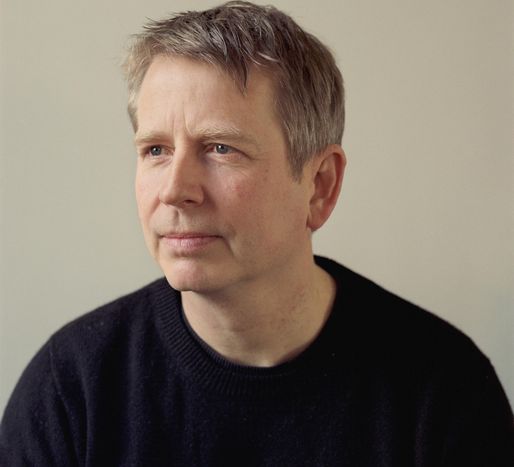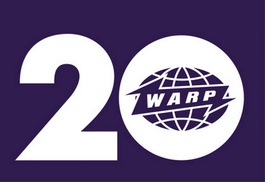
Warp records' Steve Beckett: ‘I was certain guitars would die out and electronic music would be everywhere’
Published on
Translation by:
 Mohsin Patel
Mohsin Patel
For over two decades, Steve Beckett, 45, has been at the very forefront of electronic music. His independent record label 'Weird and Radical Projects' is home to the likes of Aphex Twin and Plaid, and has overseen the birth of some of the now finest names in electronic music over the past 20 years
 From their record shop in their home town of Sheffield, England, Steve Beckett and Rob Mitchell always sought bigger and better things. Simply selling CDs was not enough; producing electro-play music through machines was a must. Warp was founded in late 1989. Its aim was to apply conceptual identities from other genres of music to dance music. LFO, Autechre, Aphex Twin, The Sabres of Paradise, Seefeel, Plaid, Squarepusher…some of the finest visionaries of the nineties are just releasing their records.
From their record shop in their home town of Sheffield, England, Steve Beckett and Rob Mitchell always sought bigger and better things. Simply selling CDs was not enough; producing electro-play music through machines was a must. Warp was founded in late 1989. Its aim was to apply conceptual identities from other genres of music to dance music. LFO, Autechre, Aphex Twin, The Sabres of Paradise, Seefeel, Plaid, Squarepusher…some of the finest visionaries of the nineties are just releasing their records.
The label settled in London in 2000. Tragically, co-founder Rob Mitchell died after a five-month cancer battle in 2001 aged 38. His legacy is a new wave of artists following in the footsteps of the success of the launch of Warp: Jamie Lidell, Leila, Grizzly Bear, Maximo Park, Flying Lotus and Gang Gang Dance. The label's twentieth anniversary was celebrated in Paris, at the cité de la musique ('city of music') venue, in May. Other 'Warp 20' events are planned for New York, Tokyo, London and of course Sheffield. Interview with the remaining co-founder of the label, 45.
Do you feel as though the past twenty years have gone by quickly?
So quickly that it doesn’t seem to have lasted five minutes. As though we’ve only just released and sold our first CD in the UK.
An insight into what we can expect in the next ten years?
To be honest, everything new is already out. Ten years ago, I would never have even dreamed of the changes that the music industry has seen. Ten years ago, for example, I didn’t think I’d be surfing the internet or downloading music. In the next decade, technology will become more like science fiction.
Did you think that electronic music would evolve as it has done over the past two decades when you first started out?
I’m not sure. Every era lends itself to music, different genres, and I wouldn’t exactly say it was a bad period for electronic music. We are still benefitting from stupefying personalities such as Flying Lotus, Hudson Mohawke, Chris Clark, Bibio and Rustin.
As for the progress, I always thought that we would have electronic music everywhere and I was certain that music based on the guitar or other instruments would die out. That just goes to show how wrong you can be if you try and predict the sounds of the future. We don’t know what’s going to happen. We could go back to the 1920s…
What is the link with the nineties?
The way in which artists present themselves and experiment has not changed. The shapes and tools might change, but artists continue to want to innovate for the rest of the world. That was the way it was in the 1990s, that’s the way it is now, and that’s the way it will be in two thousand years.
When you were young, did you think that machines would define the record label?
At that time, I didn’t know there were any limits, and I did not realise that the only limit for new sounds was technology itself. We went to a studio where people were rehearsing. The whole spectrum was covered. Aphex Twin or Squarepusher had explored the whole territory. We had to go into a different direction, explore new tracks. That’s why I decided to sign not just electronic artists any more, but rather work with instrumental artists. Just like the group Battles, who have their roots in electronic music and use instruments in an innovative manner.
How do you choose between the 200 demos or so that you receive every month?
I go off instinct, an emotional connection towards young artists who are unique and original; when they’re fresh, and give off the impression of pushing their limits with big melodies and a good sound. But very few demos present these qualities whilst giving a sense of originality.
Who are your new finds this year?
I’m very excited by Gonjasufi. He’s a lad from the Las Vegas desert, who has a very profound, spiritual and complex, hip-hop style. There are some other guys too, Battles, who play electronic music which is both avant-garde and classical. These two albums will come out at the end of the year.
How did you meet Chris Waitt, the director of the documentary that Warp released in 2008, A Complete History of My Sexual Failures?
I met him whilst he was shooting short films and pleasant videos, by interviewing people in the street. In his autobiographical documentary, everything is true, including the six Viagra [on which he overdoses before meeting his current girlfriend in the movie - ed].
What are the upcoming plans for WARP films?
We’ve just finished Bunny and the Bull (2009), a road-movie which takes place in a living-room, directed by Paul King. It’s a weird story about schizophrenia. Theatrically, it works perfectly well. And there’s another film, Le Donk, by Shane Meadows (of This Is England fame) – a strange comedy about a hip-hop manager. And there are lots of other things in the pipeline.
Why did you choose to kick off the tour of your twentieth anniversary in Paris?
It was just somewhere to start it off. We had to kick off somewhere! (Laughs)
Translated from Steve Beckett: "Puedes estar equivocado cuando imaginas los sonidos del futuro"


